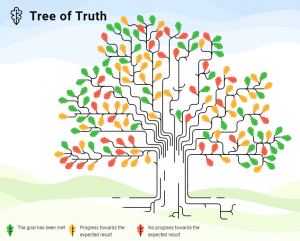National Performance Framework
Wellbeing: Wha’s like us?
October 26, 2021 by Lesley Thomson 2 Comments | Category analysis, background, data
The National Performance Framework (NPF) is Scotland’s ‘wellbeing framework’.
What is wellbeing?
The term ‘wellbeing’ is subject to a range of definitions and interpretations. In the context of the NPF, we define wellbeing as ‘living well’ as individuals and, collectively, as a society. And we view ‘living well’ in broad terms – encompassing the areas which are the focus of our National Outcomes:
- Health
- Fair work and Business
- Economy
- Poverty
- Environment
- Education
- Children
- Communities
- Human Rights
- Culture
- International
For Scotland to become ‘a more successful country with opportunities for all to flourish through increased wellbeing’, we need to progress towards all 11 National Outcomes.
We review those National Outcomes regularly to make sure they reflect what matters most to people in Scotland. Just now, as we plan the next review, we’re looking at what’s happening elsewhere in the world. Helping us see what is uniquely ‘Scottish’. And to consider what we might learn from others.
What were we looking for?
So we set out to explore other wellbeing frameworks across the world. We took a close look at 32 countries, seeking to find out:
- how they measure and report on success
- if they have an equivalent to the National Performance Framework
- the purpose of such frameworks
- who they’re for
- how they’re used
Of the frameworks we looked at, many took inspiration from the definition and measures of wellbeing recommended by the OECD. That is, they covered
- current wellbeing (using subjective and objective measures of progress);
- future wellbeing (resources for future wellbeing)
- and inequalities in wellbeing (differences in wellbeing between individuals and population groups).
What did we find?
We found that countries differ in what they consider most important to wellbeing. Even between close neighbours, like the devolved nations of the UK, there are differences in what is considered important for a good life. And in the measures of progress attached to them.

Estonia’s Tree of Truth, one of the frameworks we looked at.
Scotland is among a smaller group of countries with legislation and outcomes attached to its wellbeing framework. And, with 81 National Indicators, Scotland is mid-range for the number of indicators used to assess progress (which range from 12 to 135).
Some features stood out as being specific to Scotland and to the National Performance Framework. A strong focus on the wellbeing of children and young people, for example. This is captured in unique indicators, such as “confidence of young people”. Additionally, a “healthy start in life” is not measured elsewhere. And the importance of “community ownership” and “access to blue-green space” are also unique to Scotland.
As for what’s similar, “time-use” and “satisfaction from time use” feature in a number of other national frameworks. Germany’s framework, for example, looks at “time spent commuting” and “reduced working hours for care responsibilities”.
And we were inspired by innovative ways that trends in wellbeing are communicated. In Canada, for example, wellbeing is summarised in a single statistic.
What did we learn?
The call to measure social progress beyond Gross Domestic Product (GDP) has been around almost as long as GDP itself. But national ‘wellbeing’ frameworks are a relatively recent development. The National Performance Framework was first published in 2007. Bhutan launched their Gross National Happiness Index in 2008. And, most recently, Ireland published their Well-being Framework in July this year.
Wellbeing continues to mature as a measurement agenda, becoming increasingly relevant as a guide for policy making. And a growing number of countries are using wellbeing metrics to guide decision-making and inform budgetary processes.
In conclusion, it is clear that wellbeing is a common and uniting global goal. However, it is contextual. As the world seeks to recover from Covid-19, we all face challenges to societal wellbeing. It is important we understand and acknowledge our similarities and our differences when we look to learn from other nations. And as wellbeing frameworks develop, stretch and evolve, we will continue to improve Scotland’s National Performance Framework.
Find out more
- You can view all of our National Outcomes and Indicators on the NPF website.
- Subscribe to our blog or follow us on Twitter for updates on the NPF review.
- And there’s still time to complete our NPF user survey, which is open until the end of the month.
Tags: analysis, data, international comparisons, review, wellbeing

We looked at:
Scotland
Iceland
New Zealand
Wales
Finland
UK
N. Ireland
Jersey
Netherlands
Republic of Ireland
Canada
Denmark
Norway
Sweden
Bhutan
Germany
Estonia
France
Australia
Luxembourg
Italy
Austria
Spain
Portugal
Belgium
Slovenia
Czech Republic
UAE
Ecuador
Bolivia
Israel
Japan
Hello.
Can you please provide a list of 32 countries to whom you have reviewed as you have mentioned. It will be really helpful.
Thank you